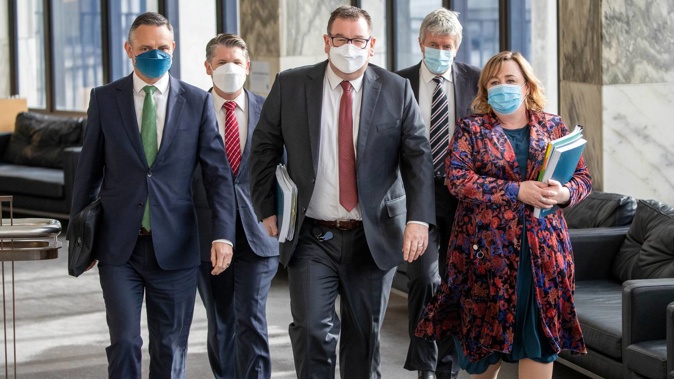
The Government is committing to making it increasingly difficult for businesses to rely on energy generated from fossil fuels.
Further to banning new offshore oil and gas exploration in 2018, and committing to a "100 per cent renewable electricity by 2030" target, the Government is planning to ban electricity companies from investing in new baseload generation from fossil fuels like coal and gas.
New Zealand has in recent years relied heavily on coal to generate electricity when lake levels have been low and gas plants have had outages for maintenance.
While electricity companies are already planning to invest more in clean energy, like wind, to meet ever-growing electricity demands, the Ministry of Business, Innovation and Employment (MBIE) will start consulting on the ban later this year. It plans to have it in place by 2024.
This was one of the energy-related initiatives the Government unveiled on Monday in its Emissions Reduction Plan, which outlines how New Zealand will meet its emissions budgets.
While the plan includes a number of sticks, it also includes carrots. For example, the Government is committing to putting more than $650 million over four years towards various schemes aimed at decarbonising the energy system.
This funding will largely come from revenue generated from the Emissions Trading Scheme.
Energy and Resources Minister Megan Woods said funding will go towards big projects to decarbonise process heat.
"There will also be targeted investment at a regional level for projects that optimise low emission fuel use, funding for electricity transmission and distribution infrastructure upgrades to support fuel-switching, and the early adoption of high decarbonisation energy technologies," she said.
Specifically, the Government plans to provide rebates for businesses, including small businesses, farms and factories, to procure and install energy-efficient electrical equipment. It hopes to do this between 2022 and 2028.
It plans to get central and local government to explore power purchase agreements with new renewable generation projects.
The Government is committing to investigating "additional market mechanisms and regulation" to meet its 100 per cent renewable electricity goal. MBIE is expected to start consulting on this in late-2022, with the aim of having measures implemented by 2024.
The Government also unveiled a new target in addition to what it described as its "aspirational" 100 per cent renewable electricity target. It committed to ensuring 50 per cent of the country's "total energy consumption" comes from renewable sources by 2035.
Looking further down the track, it pledged to develop a mandatory energy and emissions reporting scheme for large energy users by 2024.
Finally, the Government acknowledged there are some firms that have high-temperature heat requirements, but few technologically or commercially available alternatives to fossil fuels.
For these firms, which include those involved in steel or cement-making, the Government said it would develop specific strategies to help reduce emissions.
Take your Radio, Podcasts and Music with you









